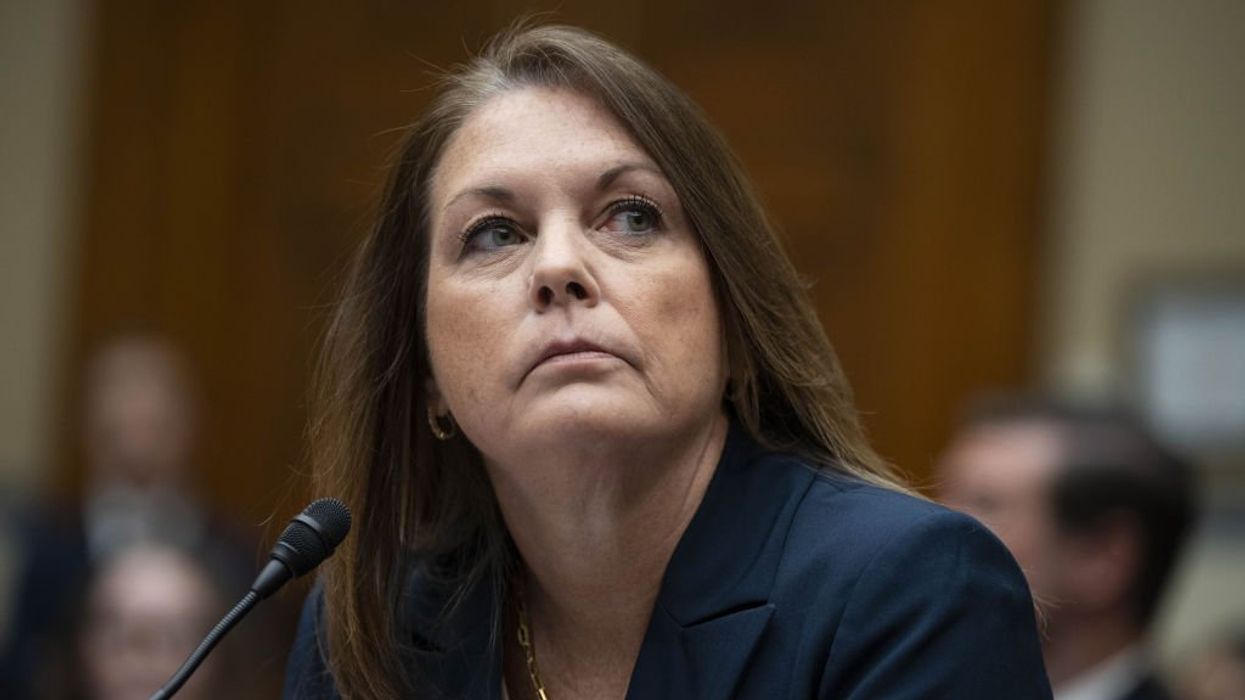
Photo by Mostafa Bassim/Anadolu via Getty Images

It’s clear from the attempted murder of Trump that the agency’s dysfunctional personnel quality, driven by politicized policy, runs deep.
The Secret Service leadership has accomplished the unthinkable by uniting lawmakers across the political spectrum.
With the Secret Service’s ugly nakedness revealing unimagined incompetence and disorganization, Director Kimberly Cheatle made the display far worse by stonewalling congressional Democrats and Republicans at Monday’s House oversight hearing.
By adding seasoned professionals to protect the top candidates, the Secret Service under new leadership can quickly improve its capabilities.
Cheatle and others have politicized the Secret Service the way the Department of Homeland Security, the FBI, and the intelligence community have been politicized. The effects that DEI and other forms of critical race theory have had on the Secret Service were plain for all to see within seconds of the July 13 assassination attempt on Donald Trump.
Apart from the investigations and recriminations for dereliction of duty, what can be done to improve protection for whomever will be our next president and vice president?
A quick interim solution is to augment the executive security functions of the Secret Service by hiring skilled private contractors.
By adding seasoned professionals to protect the top candidates for the highest positions in the land — personal security detail, counter-snipers, logisticians, drone operators, and others — the Secret Service under new leadership can quickly improve its capabilities.
This is not a radical idea. A private company formed the embryo of today’s Secret Service. Allan Pinkerton’s private detectives, working as railroad security, uncovered a plot to assassinate President-elect Abraham Lincoln during an 1861 visit to Baltimore. After the State Department failed its mission to detect and neutralize Confederate spies in Washington during the Civil War, Lincoln hired the Pinkerton National Detective Agency to run United States counterintelligence. The Pinkertons quickly slashed the intense levels of Confederate espionage in the capital city until Lincoln transferred counterintelligence to the Department of War.
But the U.S. had no intelligence service behind Confederate lines. Lincoln hired Pinkerton to establish what he called a “secret service” to collect wartime intelligence in the South. A courageous Pinkerton man and former New York City police officer, Timothy Webster, successfully placed himself among Confederate leaders but was caught and died on the gallows.
President Lincoln personally paid a private intelligence agent, William A. Lloyd, out of his pocket as a secret back-channel source to evaluate the intelligence he was receiving from his generals. Months after Lincoln’s assassination, the Treasury Department established today’s United States Secret Service.
The service would not protect presidents until assassins gunned down two more presidents, James A. Garfield and William McKinley. Congress would wait another 50 years before making the Secret Service responsible for presidential protection under law.
Fast forward to recent times. With the extraordinary security required to protect American civilians working in or visiting war zones in Iraq and Afghanistan, the U.S. military, State Department, and Secret Service have become stretched far beyond their limits. They have turned to private talent for help.
As a presidential candidate in July 2008, Barack Obama visited Afghanistan under the protection of the first-rate security professionals with Blackwater. Yes, that Blackwater. The company founded by Erik Prince.
Blackwater performed with extraordinary courage, efficiency, and dedication in Afghanistan, Iraq, and elsewhere. Over the course of its duty in the wars in Afghanistan, Iraq, and elsewhere, Blackwater accomplished its mission to protect 100% of Americans under its care, 100% of the time — even though it lost its own men in the line of duty.
Other private companies also served with distinction. Blackwater, though, was the brand. It set the standard. The Obama administration ultimately crushed it for reasons relating to the politics of its founder and CEO.
Today’s Secret Service doesn’t merely need additional, immediate help from private companies. It’s clear from the attempted murder of Trump that its dysfunctional personnel quality, driven by politicized policy, runs deep. This is where the privatization of Secret Service functions can help correct the problem quickly.
J. Michael Waller